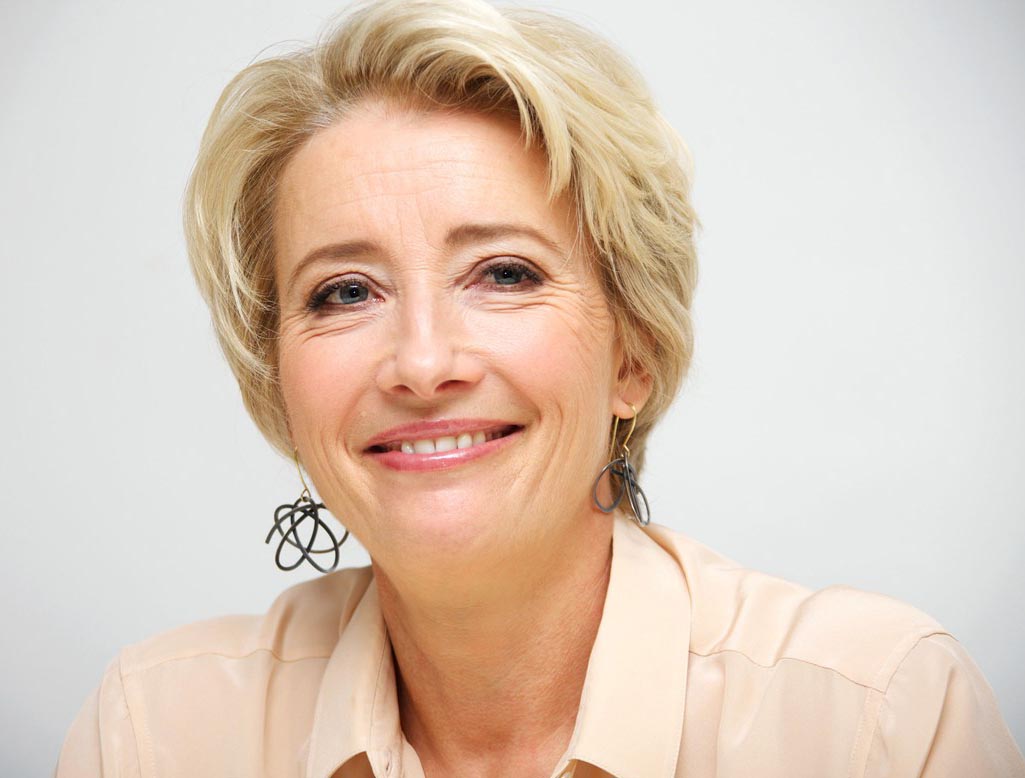April 15: Emma Thompson (1959)
Thompson received high praise for the 2001 Mike Nichols-directed HBO TV-movie “Wit,” in which she played a Harvard University professor diagnosed with ovarian cancer, who finds her values challenged. Returning to HBO two years later, Thompson appeared in three small roles for the 2003 TV mini-series “Angels In America,” about the AIDS epidemic in Reagan-era America. She wrote and played the title role in the children’s films Nanny McPhee (2005) and Nanny McPhee Returns (2010), appearing as well, as professor Sybill Trelawney, in two Harry Potter films: Harry Potter and the Prisoner of Azkaban (2004) and Harry Potter and the Order of the Phoenix (2007). For her versatility and sensitivity, in a wide range of roles, Thompson has been cited as one of the greatest British actresses of her generation.
To her acting and writing credits should be added credit as activist: for being a supporter of Greenpeace, ambassador for the charity ActionAid, a patron of the Elton John AIDS Foundation and Refugee Council and for having been a member of the British-based ENOUGH! Coalition, seeking an end to the “Israeli occupation of the Gaza Strip and West Bank.” As well as being outspoken on religion as well as politics, the environment and human rights, Thompson has been outspoken on religion, as well. Although she has said, “The guiding moral principles, the ethical principles, much of the philosophy [of the Christian tradition], if properly applied, is very good,” Thompson maintains that it is Christianity’s treatment of homosexuals that made her question religious faith. She explained in an interview with The Advocate: “I was brought up, partially, by these remarkable, intelligent, wonderful men, and they made me consider and question all moral systems from a very young age. ... They were the reason I rejected Christianity outright, because it said that homosexuality wasn’t allowed. I thought, ‘That’s ridiculous! It’s perfectly normal, so what do you mean it isn’t allowed?’”
It was in a 15 October 2008 interview in The Australian, that Emma Thompson said, “I’m an atheist; I suppose you can call me a sort of libertarian anarchist. I regard religion with fear and suspicion. It’s not enough to say that I don’t believe in God. I actually regard the system as distressing: I am offended by some of the things said in the Bible and the Qu’ran, and I refute them.”


